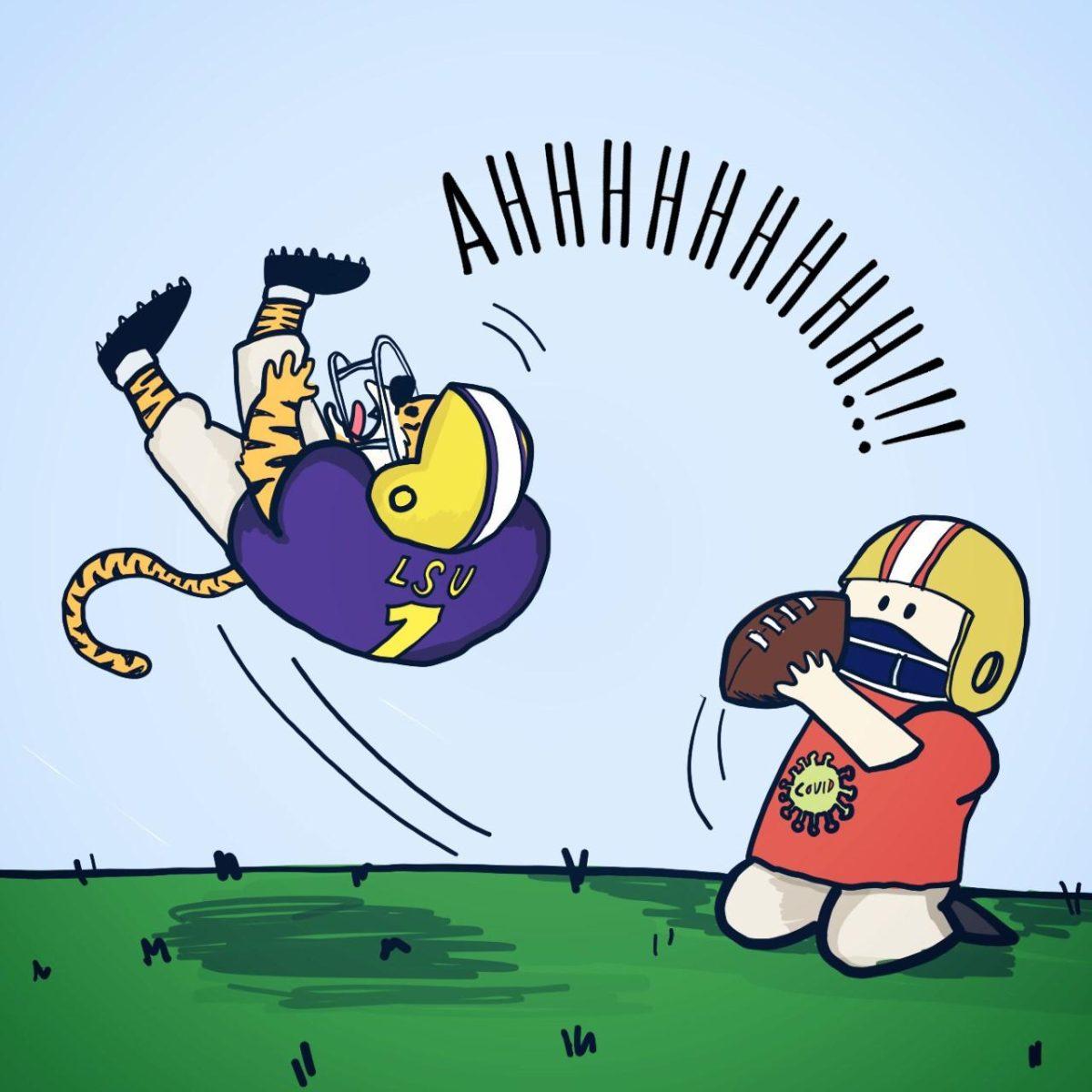On August 11, the Pac-12 and Big Ten decided to postpone their fall sports seasons into 2021, citing the health of their fans, athletes and staff as the rationale for their decision. Simultaneous to this ultimatum was the SEC’s choice to refine their schedules to a conference-only model rather than postpone the season into the new year.
With football season scheduled to kick off in less than a month, LSU fans are anxiously awaiting the fate of Saturday nights still to come.
Bolstered by a nationwide attitude that the pandemic is not only over, but that the luxuries of pre-pandemic life can just continue with no consequences, many sports fans, specifically those in the south, see football as an essential activity that must continue regardless of the dangerous potential.
Even if the SEC and other conferences that decided to play football this fall operate with safety as their highest-level priority by isolating athletes and limiting attendance, the culture surrounding southern football has a super-spreading event embedded right into its DNA: tailgating.
Sure, limiting attendance to a fraction of pre-pandemic numbers could decrease the odds of Death Valley itself becoming a viral epicenter, but what of the countless tailgates on campus? A humid environment with little airflow where people exchange airborne particles by devouring food and drink in close proximity sounds like a coronavirus hotbed, especially in 90+ degree weather that makes mask-wearing unbearable.
It seems far-fetched to assume these tailgating patrons would be willing to forego their Saturday night experience entirely, or that campus and local law enforcement would even be able to enforce against such large congregations. Even if the NCAA, the SEC, or the University sets rules against large tailgates and gatherings, what’s stopping them from migrating off-campus to even more cramped locales at an ever greater risk of prolonging the pandemic?
Fall football and tailgating during the pandemic will not only hinder any progress the University and Baton Rouge have made so far but also put lives in jeopardy when the virus follows fans and tailgaters home.
The dangers of potentially infecting members of our community should overshadow any desire to cram into and around Tiger Stadium during the largest global pandemic in over a century. But to some, it seems, football means more than protecting public health.
If the SEC and the University truly care about their students and fans, then they should be actively campaigning to sacrifice one season of football in exchange for a more expedited return to ‘normal.’
On the upside, if the University and the conference choose to postpone the season, Tiger fans can take pride in knowing they’ll still be the reigning national champions for another year.
Domenic Purdy is a 19-year-old journalism sophomore from Prairieville, LA.
Opinion: ‘Louisiana Saturday Nights’ amid COVID-19 could spell disaster
August 26, 2020
COVID-19 Football Cartoon





